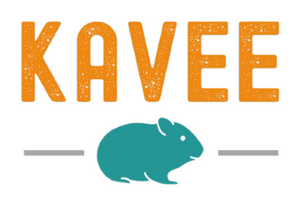We love our guinea pigs to the moon and back but let's agree to say that they can be smelly little creatures! Not only are they masters at creating a mess in their cage but they can also scent mark..A sad event for our nostrils!
But, can guinea pigs also fart?
Well, sadly yes!

This phenomenon is completely normal and natural but did you know that too much gas can become dangerous? Even though their digestive system is broadly similar to ours, guinea pigs are unable to pass large quantity of gas through their intestines. Too much gas can be symptomatic of a life threatening issue called the guinea pig bloat.
What is guinea pig bloat ?
Just as humans, guinea pigs can also suffer from bloating. When bloating occurs, the discomfort is often much more painful in guinea pigs. Guinea pig bloat occurs when excess trapped gas cause organs to become compressed. As a result, gut motility is severely slowed. This can be fatal if it’s not dealt with in time.
What are the symptoms of guinea pig bloat?

- Hard and swollen belly
- Loss of appetite
- Weakness, lethargy
- Muscles spasms
- Rapid breathing
- Regurgitation of saliva due to nausea
- Weight loss
- Constipation
In some cases, your guinea pig may also whimper when touched because of their sore, distended belly. If you suspect guinea pig bloat, don’t wait to take your pet to the vet!
What cause bloating in guinea pigs?
Gas is a normal part of the digestive process. The trouble starts when normal digestion is disturbed. Here are some causes of increased gas in guinea pigs:
- Sudden change in diet
The key to feeding a guinea pig is balance and regularity. This is why a sudden change causes disorder in their sensitive digestive system.
- Excess of fermentable vegetables
These include the cabbage family (brussels sprouts, cauliflower, kale, white cabbage, red cabbage). Sweet fruits and fresh herbs given in excess can also cause gas.
- Ingestion of food too quickly
Some gluttonous guinea pigs rush to eat. By eating too quickly, they swallow air that cannot be expelled.
- Stress
Stress is known to be the cause of many diseases. Bloating is one of them as stress stimulates the contractions of the intestine.
- Dehydration
Check the quality of the water given to your guinea pig. It should be clean, free of alga and not too cold. Keep a close eye on your guinea pig’s water intake as you will need to step in if they are not drinking enough.
- Cold, wet or rotten food
Like water, the quality of food must be irreproachable to avoid any risk of fermentation.
How can I help my guinea pigs if they are bloated?
Fortunately, there are ways you can help your guinea pigs if they are experiencing bloat. One of them is by massaging your guinea pig's abdomen. This can be done by placing your guinea pig on your lap, facing you, and gently massage its belly from back to front to get the gas out through its mouth.
If you notice your guinea pig is displaying any of the above symptoms of guinea pig bloat, and there is no improvement, they should be taken to the vet for further assessment.

How to prevent guinea pig bloat?
To prevent your piggy from developing guinea pig bloat, we have created a list of things you should keep in mind:
- Introduce new foods gradually, especially if you are tempted to feed your guinea pig with grass during the warmer months.
- Exercise your guinea pig in a playpen such as guinea pig playpens from Kavee, or in a secure room. Your guinea pigs should also be kept in a large guinea pig cage that meet their needs, not a tiny cage from pet store. An active piggy will keep their gut healthy and happy!
- Give unlimited quality hay for a healthy digestive system. It should be the basis of their diet.
- Avoid feeding your guinea pig pellets with corn or cereals: they can be harmful in the long term as it is often more difficult to break down.
- Feed your guinea pig appropriate foods that are easy to digest.
The truth about grass clippings and guinea pigs
You’ve just finished cutting your lawn and have plenty of grass clippings. The thought may have crossed your mind to feed this to your guinea pigs: it’s just grass, right? Wrong!
You may be surprised to learn that grass clippings should not be fed to your guinea pigs. Grass mowings can cause excessive build up of wind in your piggies and can also be a lethal combination of unsafe plant material. If fed, owners will often find their piggies have springy expanded bellies.

What should I do if I fed my guinea pigs grass mowings?
When a guinea pig ingests lawn clippings, symptoms of guinea pig bloat will often occur rapidly. The best solution to this is to hydrate your piggy with gripe water via a syringe. Gripe water has been traditionally used to treat gas build up in babies, and can be used the same way for piggies.
These water sessions should be followed by a gentle massage of the sides of your guinea pig’s belly. Repeat at least 2 -3 times across a few hours as this should relieve the bloat. If not relieved, contact your vet for further assistance.

Conclusion
Guinea pig farts are funny but much less so when it becomes a serious concern! Pay attention to your furballs in order to notice any abnormal behavior. The most important thing is to give your guinea pig a healthy life, daily care and excellent nutrition. Guinea pigs are wonderful pets but they are fragile, so don't hesitate to ask your vet for advice.
So... next time you pass wind, you can always blame it on your guinea pig!
Further readings :
https://be.chewy.com/beware-of-guinea-pig-bloat/
https://mypetguineapig.com/do-guinea-pigs-fart/
https://www.guineapigtube.com/can-guinea-pigs-fart/
http://www.passioncobaye.com/site/gaz-tympanisme.html
http://siterongeurs.e-monsite.com/pages/cochons-d-inde/problemes-de-sante/le-meteorisme.html







